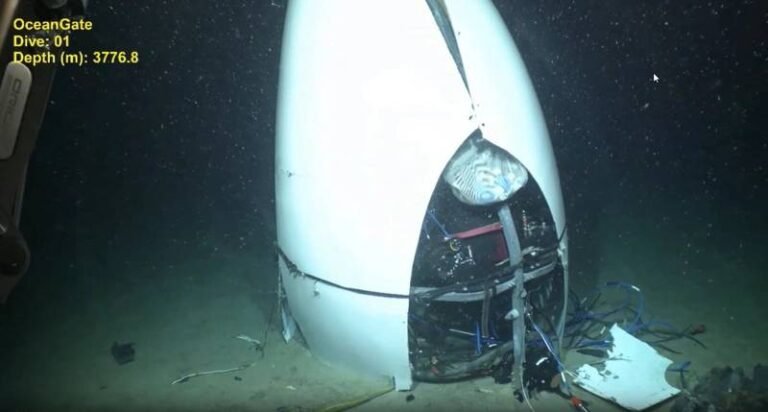The Tragic Titan Submersible Incident: Lessons Learned from a Preventable Disaster
In 2023, the maritime world was shaken by the catastrophic implosion of the Titan submersible, resulting in the loss of five lives. A recent investigation by the US Coast Guard has shed light on the preventable nature of this tragedy, citing critical flaws in the vessel’s safety culture and the operational practices of OceanGate, the company managing the submersible.
The Titan was on a descent to the Titanic wreck as part of a tourist expedition when it suddenly vanished, losing contact with its support ship. Following a tense four-day search, the shattered remains of the submersible were found strewn across the seabed, 1,600 feet from the bow of the wreck.
The US Coast Guard’s report highlights the delayed notification from OceanGate, which hindered the initial response efforts. Despite these challenges, the Coast Guard, along with multiple partners, demonstrated ingenuity and resourcefulness in their search and rescue mission.
Operational Challenges and International Response
The deep-sea environment and remote dive site presented extraordinary challenges to the rescue mission. However, the international effort showcased the power of unity in the face of adversity. The Coast Guard’s commitment to its search and rescue operating philosophy drove a relentless pursuit of all available resources until all hope of rescue was exhausted.
While OceanGate identified external deep-sea rescue resources in their 2023 Project Execution Plan, they failed to proactively engage or prepare third-party services for the Titan expedition. This lack of on-scene resources, such as an ROV or a secondary submersible, hindered immediate search and rescue attempts in case of an emergency.
Lessons Learned and Recommendations
The investigation report outlined a myriad of issues with OceanGate’s operations, including inadequate structural engineering analysis, failure to follow manufacturing and testing specifications, and a toxic safety culture within the company. These findings underscore the importance of robust safety protocols and adherence to industry standards in maritime operations.
Key recommendations from the report include the need for a designated Director of Safety, formal pilot training and credentialing, and proper troubleshooting procedures for submersible hulls. Additionally, addressing regulatory gaps and ensuring compliance with international standards are crucial steps towards preventing similar incidents in the future.
Ultimately, the Titan submersible incident serves as a somber reminder of the importance of prioritizing safety and adherence to best practices in maritime operations. By learning from this tragedy and implementing necessary reforms, we can strive to prevent such disasters and ensure the safety of all those involved in underwater exploration.

